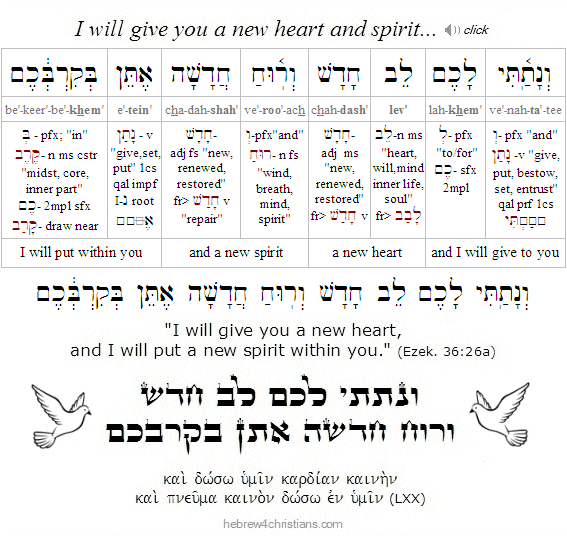|
Our Torah portion this week (i.e., parashat Emor) begins by explaining special requirements for Israel's priests, and then goes on to list the yearly cycle of Sabbaths and the seasonal festivals. First of all the priests (kohanim) were required to be "perfect," without any physical defect or uncleanness that might render them unfit for service. Everything about the priests – their clothing, hair style, skin condition, and especially their adherence to the meticulous steps required to offer the daily sacrifice (לֶחֶם אֱלהָיו) - was to be "defect free," and any deviation might incur the penalty of death itself (Lev. 10:2; Num. 4:15, 2 Sam. 6:6-7). On the other hand, what sometimes disqualified a priest were things simply beyond his control, for instance, a variety of physical disabilities such as blindness, having a limp or disfigured limb, and so on (see Lev. 21:16-21).
Thinking about these requirements raises some provocative questions concerning the meaning of "perfection" in our lives, and particularly how we, as a deeply flawed people, can possibly be "perfect." The question is radical and affects how we are to understand practical holiness or the idea of "sanctification": Are we to seek to be perfect people, and if so, how do we understand what this means? Is our spirituality bound up with perfectionism, with flawless performance, and with always being and doing what is right?
In the Sermon on the Mount Yeshua warned that our righteousness should exceed that of the religious leaders of his day (Matt. 5:20), and he went on to say: "be perfect, as your heavenly Father is perfect" (Matt. 5:48). Here we note that the Greek word translated "perfect" (τέλειος) may mean "mature" or "fully developed" more than morally flawless, though regarding moral and spiritual practice this distinction is not clear cut, especially if by "mature" we mean godly in character, as the context of Yeshua's statement clearly implies (see Matt. 5:1-48). The Hebrew word translated as "perfect" (תָּמִים) can also mean "complete," but it can connote being "wholehearted," "sound," or even healed (שָׁלֵם). So the question arises, does the word "perfect" mean "flawless" or "healed" -- or perhaps both?
Of course we affirm that God alone is truly perfect (Deut. 32:4; Psalm 18:30), completely good (Matt. 19:17), flawlessly righteous (Psalm 145:17), entirely holy (Isa. 6:3; Rev. 15:4), and peerlessly unique (Exod. 15:11; Jer. 10:6-7), but how can we relate to God's overmastering perfection in the midst of our daily flaws and chronic imperfections? How dare we approach "to offer the bread of God" (Lev. 21:17)?
Followers of the LORD are called to be a nation of priests, a "select people," set apart to serve God in holiness (Exod. 19:5-6; 1 Pet. 2:9; Lev. 11:45), but it is clear we are blemished, imperfect, blind, halt, needy, and unclean... This is common to the human condition: all of us, Jew or non-Jew alike, are broken, flawed, and in the midst of the inevitable flow of life that leads to death and decay (Rom. 3:23). We are sick with sin and unable to heal ourselves, and therefore we need a radical transformation - "deliverance from ourselves" – that must come through divine intervention and the miracle of spiritual rebirth (John 3:3,7).
Nevertheless in this world the paradox still remains: we are finite yet long for the undying, the infinite; we are in flux yet anchored in hope; we are a "new creation" yet still saddled with the old nature; we are made holy yet we live in the midst of the profane; we are purified yet still need cleansing; we are healed yet are still wounded; we are redeemed of God yet still need to turn to God in teshuvah; we die daily yet have eternal life. Our hearts are to be a divine sanctuary, yet we are powerless to make God appear in our midst...
Perfection haunts us; we often confuse the ideal and the real. Our romantic visions fail us; all of us are strangers, wanderers, in lonely exile. And the question then becomes – how do we embrace the "already-not-yet," the process, the fleeting days with their poignant moments – within the context of real hope, a vision that heals and brings us real comfort? How do we make peace with our imperfections, our present darkness, and our hunger for deliverance? How do we envision healing in the midst of our brokenness?
Ironically those defects that disqualify us as priests can be transformed (by grace) into compassion for others, and this can enable us to reach out to God in the midst of our flawed existence... After all, the deepest role of the priest is to draw others near to God, but this requires empathy and awareness of the needs of others. Therefore God clothed himself with our frailty, our infirmities, and the brokenness of our sin in order to redeem us in Yeshua. As it is written, we have a high priest who is able to sympathize (συμπαθέω) with our weaknesses (Heb. 4:15). The priest of the New Covenant is a mediator through through poverty of spirit and mourning (Matt. 5:3-8). Just as Joshua the high priest was graciously given robes of righteousness in exchange for his filthy garments (Zech 3), so we are given an imputed righteousness that comes through trusting in "the One who justifies the ungodly" (Rom. 4:5). "For our sake God made Him (i.e., Yeshua) to be sin who knew no sin, so that in him we might become the righteousness of God" (2 Cor. 5:21). This is a righteousness that is "apart from the law, though the law and prophets testified of it; namely, the righteousness of God given through the faithfulness of Yeshua the Messiah" (Rom. 3:21-22). Our present groaning for the complete deliverance is a gift given by the Spirit of God crying out within our hearts (Rom. 8:22-23).
C.S. Lewis once remarked, "God doesn't love you because you are good, but He will make you good because He loves you." This goodness is the miraculous inner working of an imparted godliness, the divine gift of a new heart and spirit (Ezek. 36:26). Awaken to your eternal perfection in the world to come: "You shall be perfect even as your heavenly Father is perfect" can be read as a prophecy. Do not give up, friends; do not succumb to despair. We must learn to endure ourselves and believe in the healing to come. "Do not lose heart. Though our outer self is wasting away, our inner self is being renewed day by day. For this light momentary affliction is preparing for us an eternal weight of glory beyond all comparison, as we look not to the things that are seen but to the things that are unseen. For the things that are seen are transient, but the things that are unseen are eternal" (2 Cor. 4:16-18). And may God help us walk in perfect faith in His unfailing love (Phil. 3:14).
Hebrew Lesson
Ezekiel 36:26a reading (click):
Note: This topic was meant to provoke us to do some hard thinking and to raise some questions... Yeshua is our perfect "inner priest" who mediates God's love and holiness for us, of course. In Him alone we find peace with God and a place for perfection. Shalom.
|



